Mahshid Ahmadi
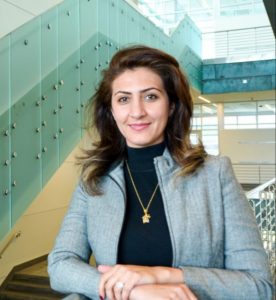
Mahshid Ahmadi received her PhD in Materials Science and Engineering from Nanyang Technological University (NTU), Singapore in 2013 with focus on development of low-cost materials for energy applications. Prior to joining the University of Tennessee, she worked as a research and technology consultant in a start-up perovskites solar cell company in Dallas, TX. Currently she is a tenure-track assistant professor from 2019. She started one of the first in the world groups on automated laboratories and high-throughput synthesis and characterization techniques for materials discovery and design, initially targeting the fields of halide perovskites and energy materials. She leads an interdisciplinary research team comprising chemists, machine learning, and materials synthesis and characterization experts. She has co-authored more than 90 peer-reviewed articles in leading journals including over 50 joint papers in collaboration with ORNL scientists. She has received the NSF early career development award in 2021 and Solan fellowship in 2022 among other recognitions.
|
Richard Archibald
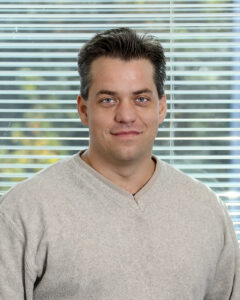 I am the group leader of Data Analysis and Machine Learning Group. I am the data analytics lead for the SciDAC DOE institute FASTMath. My research interests lie in large vision models (LVMs), machine learning fundamentals, data reconstruction and analysis, high performance computing, large scale optimization, and uncertainty quantification. I am the group leader of Data Analysis and Machine Learning Group. I am the data analytics lead for the SciDAC DOE institute FASTMath. My research interests lie in large vision models (LVMs), machine learning fundamentals, data reconstruction and analysis, high performance computing, large scale optimization, and uncertainty quantification.
|
Prasanna Balaprakash
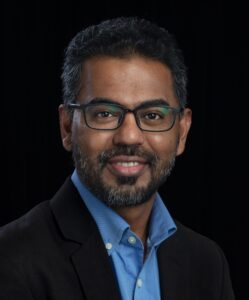 Prasanna Balaprakash is the Director of AI Programs and Distinguished R&D Scientist at Oak Ridge National Laboratory, where he directs laboratory research, development and application of artificial intelligence and machine learning (AI/ML) to solve problems of national importance. His research interests span artificial intelligence, machine learning, optimization, and high-performance computing. He is a recipient of the U.S. Department of Energy’s 2018 Early Career Award. Prior to joining Oak Ridge, he was a R&D lead and computer scientist at Argonne National Laboratory. He earned his Ph.D. from CoDE-IRIDIA at the Université Libre de Bruxelles in Brussels, Belgium, where he was a recipient of the European Commission’s Marie Curie and Belgian F.R.S-FNRS Aspirant fellowships. Prasanna Balaprakash is the Director of AI Programs and Distinguished R&D Scientist at Oak Ridge National Laboratory, where he directs laboratory research, development and application of artificial intelligence and machine learning (AI/ML) to solve problems of national importance. His research interests span artificial intelligence, machine learning, optimization, and high-performance computing. He is a recipient of the U.S. Department of Energy’s 2018 Early Career Award. Prior to joining Oak Ridge, he was a R&D lead and computer scientist at Argonne National Laboratory. He earned his Ph.D. from CoDE-IRIDIA at the Université Libre de Bruxelles in Brussels, Belgium, where he was a recipient of the European Commission’s Marie Curie and Belgian F.R.S-FNRS Aspirant fellowships.
|
Cullen Bash
 Cullen is a Vice President of R&D at Hewlett Packard Labs and currently serves as Director of the Systems Architecture Lab. Focusing on a wide range of inter-related topics including system and fabric architecture, system software, simulation and modeling, software-hardware co-design, optimization and sustainability, the multi-disciplinary lab is tasked with advancing next generation systems architecture from research to revenue. Cullen is a Fellow of IEEE and ASME. Cullen is a Vice President of R&D at Hewlett Packard Labs and currently serves as Director of the Systems Architecture Lab. Focusing on a wide range of inter-related topics including system and fabric architecture, system software, simulation and modeling, software-hardware co-design, optimization and sustainability, the multi-disciplinary lab is tasked with advancing next generation systems architecture from research to revenue. Cullen is a Fellow of IEEE and ASME.
|
Brad Beckmann
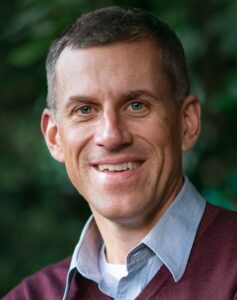 Brad Beckmann is a Fellow in AMD Research and Advanced Development group. Brad is currently the Principal Investigator for the Genteel Falcon contract pursuing a wide variety of research endeavors that include CPU computation enhancements, advanced memory systems, and distributed GPU computing. Brad joined AMD in 2007 and has previously led projects innovating in GPU memory consistency models, GPU cache coherence, simulation, and on-chip networks. He has published over 30 conference and journal papers and co-authored over 40 granted patents. Prior to AMD, Brad was a software developer for Microsoft’s Windows Server Performance team. Brad has a PhD in Computer Science from University of Wisconsin-Madison. Brad Beckmann is a Fellow in AMD Research and Advanced Development group. Brad is currently the Principal Investigator for the Genteel Falcon contract pursuing a wide variety of research endeavors that include CPU computation enhancements, advanced memory systems, and distributed GPU computing. Brad joined AMD in 2007 and has previously led projects innovating in GPU memory consistency models, GPU cache coherence, simulation, and on-chip networks. He has published over 30 conference and journal papers and co-authored over 40 granted patents. Prior to AMD, Brad was a software developer for Microsoft’s Windows Server Performance team. Brad has a PhD in Computer Science from University of Wisconsin-Madison.
|
Michael Brim
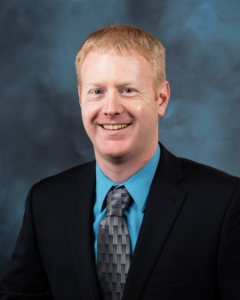 Dr. Michael J. Brim is a senior R&D staff member in the National Center for Computational Sciences at Oak Ridge National Laboratory. Michael has over 20 years of research and development experience in scalable tools, middleware, and systems software for high performance computing (HPC). His research has spanned many domains, including system administration, streaming communication and data processing middleware for HPC based on overlay networks, microservices architecture for interconnected science ecosystems, and advanced monitoring and data management in multi-tier file and storage systems. Dr. Michael J. Brim is a senior R&D staff member in the National Center for Computational Sciences at Oak Ridge National Laboratory. Michael has over 20 years of research and development experience in scalable tools, middleware, and systems software for high performance computing (HPC). His research has spanned many domains, including system administration, streaming communication and data processing middleware for HPC based on overlay networks, microservices architecture for interconnected science ecosystems, and advanced monitoring and data management in multi-tier file and storage systems.
|
Kate Clark
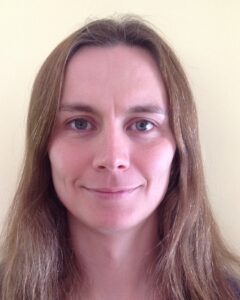 Kate Clark works at the interface of applications, algorithms, and parallel computation. Before joining NVIDIA, Kate was a researcher in radio astronomy signal-processing algorithms at Harvard University and a postdoc at Boston University in Massachusetts, with a focus on multi-grid solver algorithm. She received her Ph.D. from the University of Edinburgh, Scotland, where her doctoral research focused on Monte Carlo algorithms for Lattice QCD. Kate Clark works at the interface of applications, algorithms, and parallel computation. Before joining NVIDIA, Kate was a researcher in radio astronomy signal-processing algorithms at Harvard University and a postdoc at Boston University in Massachusetts, with a focus on multi-grid solver algorithm. She received her Ph.D. from the University of Edinburgh, Scotland, where her doctoral research focused on Monte Carlo algorithms for Lattice QCD.
|
Mario Cromaz
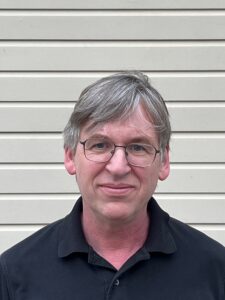 Dr. Mario Cromaz is a Staff Scientist in the Nuclear Structure Group at Lawrence Berkeley National Laboratory (LBNL). He earned his Ph.D. in experimental nuclear physics at the University of Toronto in 1996. He joined LBNL as a postdoc cross-appointed between the Nuclear Science Division and NERSC following which he joined the Nuclear Science Division. He currently serves as the CAM for GRETA computing systems. His research interests include the computational aspects of nuclear physics instrumentation, high-dimensionality data analysis and high-spin gamma ray spectroscopy. Dr. Mario Cromaz is a Staff Scientist in the Nuclear Structure Group at Lawrence Berkeley National Laboratory (LBNL). He earned his Ph.D. in experimental nuclear physics at the University of Toronto in 1996. He joined LBNL as a postdoc cross-appointed between the Nuclear Science Division and NERSC following which he joined the Nuclear Science Division. He currently serves as the CAM for GRETA computing systems. His research interests include the computational aspects of nuclear physics instrumentation, high-dimensionality data analysis and high-spin gamma ray spectroscopy.
|
Rafael Ferreira da Silva
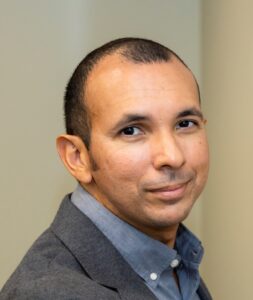 Dr. Rafael Ferreira da Silva is the Group Leader for the Workflow and Ecosystem Services (WES) group and a Senior Research Scientist at the National Center for Computational Sciences (NCCS) at Oak Ridge National Laboratory (ORNL). Additionally, he serves as the Special Content Editor for the Future Generation Computer Systems (FGCS) journal and is a Senior Member of both IEEE and ACM professional associations. Dr. da Silva’s work focuses on parallel and distributed computing systems, emphasizing efficient execution, modeling, and simulation to enhance and innovate scientific workflows. His expertise includes scheduling, optimization, fault tolerance, and energy efficiency across various platforms such as clouds, edge, and HPC clusters. As the Founder and Executive Director of the Workflows Community Initiative, he is dedicated to fostering collaboration and advancement in workflows research and development, uniting researchers and professionals to drive innovations in workflow management and applications. Dr. Rafael Ferreira da Silva is the Group Leader for the Workflow and Ecosystem Services (WES) group and a Senior Research Scientist at the National Center for Computational Sciences (NCCS) at Oak Ridge National Laboratory (ORNL). Additionally, he serves as the Special Content Editor for the Future Generation Computer Systems (FGCS) journal and is a Senior Member of both IEEE and ACM professional associations. Dr. da Silva’s work focuses on parallel and distributed computing systems, emphasizing efficient execution, modeling, and simulation to enhance and innovate scientific workflows. His expertise includes scheduling, optimization, fault tolerance, and energy efficiency across various platforms such as clouds, edge, and HPC clusters. As the Founder and Executive Director of the Workflows Community Initiative, he is dedicated to fostering collaboration and advancement in workflows research and development, uniting researchers and professionals to drive innovations in workflow management and applications.
|
Al Geist
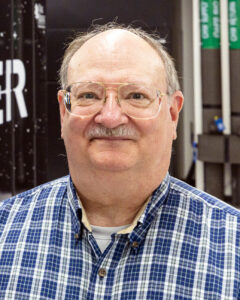 Al Geist is a Corporate Research Fellow at Oak Ridge National Laboratory and the Director of the Frontier project at ORNL’s Leadership Computing Facility. Al Geist is a Corporate Research Fellow at Oak Ridge National Laboratory and the Director of the Frontier project at ORNL’s Leadership Computing Facility.
Frontier is the first exascale computer in the world. For the past 8 years he was Chief Technology Officer on the U.S. Exascale Computing Project.
In his 42 years at ORNL, he has published two books and over 200 papers in areas ranging from heterogeneous distributed computing, numerical linear algebra, parallel computing, collaboration technologies, solar energy, materials science, biology, and solid-state physics.
For 20 years Al led the 25 member Computer Science Research Group. He is one of the original developers of PVM (Parallel Virtual Machine), which became a world-wide de facto standard for heterogeneous distributed computing and was actively involved in the design of the Message Passing Interface (MPI) standard.
His recent research is on Exascale computing and the energy efficiency and resilience needs of the hardware and software.
|
Ayana Ghosh
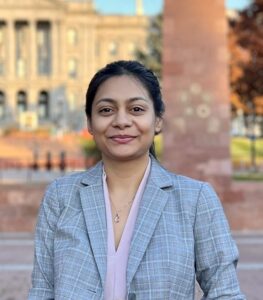 Dr. Ayana Ghosh is a Research Scientist at the Computational Sciences & Engineering Division at Oak Ridge National Laboratory (ORNL). Her research focuses on scientific machine learning methods and causal models combined with state-of-the-art first principles computations with experiments to study a wide range of materials ranging from inorganic perovskites, two-dimensional systems to organic crystals and polymers. She was the recipient of the Rising Stars in Computational and Data Sciences 2022 at the Sandia National Laboratories and Extraordinary Performance Award from ORNL in 2023, among other recognitions. She received her MS, PhD in Materials Science and Engineering in 2020 from the University of Connecticut. Dr. Ayana Ghosh is a Research Scientist at the Computational Sciences & Engineering Division at Oak Ridge National Laboratory (ORNL). Her research focuses on scientific machine learning methods and causal models combined with state-of-the-art first principles computations with experiments to study a wide range of materials ranging from inorganic perovskites, two-dimensional systems to organic crystals and polymers. She was the recipient of the Rising Stars in Computational and Data Sciences 2022 at the Sandia National Laboratories and Extraordinary Performance Award from ORNL in 2023, among other recognitions. She received her MS, PhD in Materials Science and Engineering in 2020 from the University of Connecticut.
|
Jens Glaser
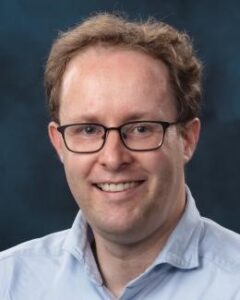 Jens Glaser is a Computational Scientist at Oak Ridge National Laboratory, where his research involves artificial intelligence methods for drug discovery and experimental collaborations. Jens holds a Dr. rer. nat. in Physics from Leipzig University in Germany. He has worked as a postdoc at the Department of Chemical Engineering and Materials Science at the University of Minnesota and as an Assistant Research Scientist at the Department of Chemical Engineering at the University of Michigan. Jens has a passion for making molecular simulations run at warp speed on GPUs and pushing their limits for computational science. Jens Glaser is a Computational Scientist at Oak Ridge National Laboratory, where his research involves artificial intelligence methods for drug discovery and experimental collaborations. Jens holds a Dr. rer. nat. in Physics from Leipzig University in Germany. He has worked as a postdoc at the Department of Chemical Engineering and Materials Science at the University of Minnesota and as an Assistant Research Scientist at the Department of Chemical Engineering at the University of Michigan. Jens has a passion for making molecular simulations run at warp speed on GPUs and pushing their limits for computational science.
|
William Godoy
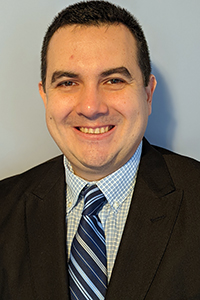 William Godoy is a senior computer scientist in the Computer Science and Mathematics Division at Oak Ridge National Laboratory (ORNL). His interests are in high-performance computing, programming systems, scientific software, and workflows. At ORNL, he contributed to the Exascale Computing Project applications -QMCPACK- and software technologies portfolios – ADIOS2, PROTEAS-TUNE, and currently works across projects funded by the Department of Energy Advanced Scientific Computing Research (ASCR) program. Prior to ORNL, he was a staff member at Intel Corporation and a postdoctoral fellow at NASA Langley Research Center. Godoy received a Ph.D. degree in mechanical engineering from the University at Buffalo, The State University of New York. He is a senior member of the IEEE, and a member of ACM, ASME and US-RSE. William Godoy is a senior computer scientist in the Computer Science and Mathematics Division at Oak Ridge National Laboratory (ORNL). His interests are in high-performance computing, programming systems, scientific software, and workflows. At ORNL, he contributed to the Exascale Computing Project applications -QMCPACK- and software technologies portfolios – ADIOS2, PROTEAS-TUNE, and currently works across projects funded by the Department of Energy Advanced Scientific Computing Research (ASCR) program. Prior to ORNL, he was a staff member at Intel Corporation and a postdoctoral fellow at NASA Langley Research Center. Godoy received a Ph.D. degree in mechanical engineering from the University at Buffalo, The State University of New York. He is a senior member of the IEEE, and a member of ACM, ASME and US-RSE.
|
Kathleen Hamilton
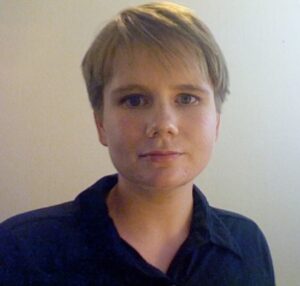 I am an early career research staff member in the Quantum Computational Science Group. Since joining Oak Ridge National Laboratory in 2016 I have worked on several projects focusing on the development of algorithms, methods and applications for near-term, next-generation processors (e.g. quantum computers and neuromorphic computers). I am an early career research staff member in the Quantum Computational Science Group. Since joining Oak Ridge National Laboratory in 2016 I have worked on several projects focusing on the development of algorithms, methods and applications for near-term, next-generation processors (e.g. quantum computers and neuromorphic computers).
Currently I am focused on hybrid workflows that use classical and next-generation platforms. This work allows me to leverage my diverse research background in quantum computing, discrete mathematics, and correlated dynamics. What I find fascinating about my research is discovering how different components of hybrid workflows interact, and how this can be used to build scalable applications that are noise robust. In addition to understanding the capabilities of near-term hardware, my work has also resulted in demonstrations of real-world applications such as epidemic modeling.
|
Heidi Hanson
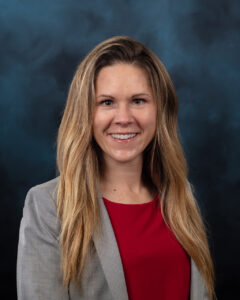 Dr. Heidi Hanson is the Group Lead of the Biostatistics and Biomedical Informatics Group in the Computing and Computational Sciences Directorate at Oak Ridge National Laboratory. Her training and experience in the fields of demography, statistics, biomedical informatics, and life course epidemiology allow her to bring a unique set of expertise to building computational tools to identify populations at high risk for disease. She is currently the lead on DOE-National Cancer Institute (NCI) Modeling Outcomes using Surveillance Data and Scalable Artificial Intelligence (MOSSAIC) program, focused on advancing computing, predictive machine learning/deep learning (ML/DL) models, and large language models for near real time extraction of information from health records for NCI-supported cancer research. She also leads the “Data-Driven Population Health Surveillance at Scale for Pandemic Readiness” project, which is advancing a suite of innovative computational tools designed to enhance biopreparedness through the efficient integration of real-world data. Dr. Heidi Hanson is the Group Lead of the Biostatistics and Biomedical Informatics Group in the Computing and Computational Sciences Directorate at Oak Ridge National Laboratory. Her training and experience in the fields of demography, statistics, biomedical informatics, and life course epidemiology allow her to bring a unique set of expertise to building computational tools to identify populations at high risk for disease. She is currently the lead on DOE-National Cancer Institute (NCI) Modeling Outcomes using Surveillance Data and Scalable Artificial Intelligence (MOSSAIC) program, focused on advancing computing, predictive machine learning/deep learning (ML/DL) models, and large language models for near real time extraction of information from health records for NCI-supported cancer research. She also leads the “Data-Driven Population Health Surveillance at Scale for Pandemic Readiness” project, which is advancing a suite of innovative computational tools designed to enhance biopreparedness through the efficient integration of real-world data.
|
Hans-Christian Hoppe
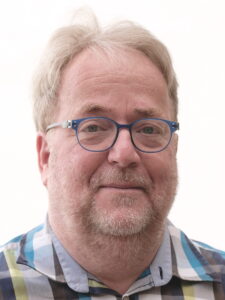 Hans-Christian Hoppe has made significant contributions to HPC since the 1990s, including impact on the MPI standard, first use of virtualization for HPC federation, leading performance analysis tools, and co-definition of the Modular Supercomputing Architecture(MSA).He was responsible for the Intel Cluster Tools, early Manycore processor research, the Intel Visual Computing Institute and Exascale Lab, and as co-lead for a Darpa project on disruptive Graph-analytics architecture and Intel’s early European AI research activities. In 2022, he joined Jülich Supercomputing Centre and ParTec AG, leading the DEEP-SEA project and contributing to other EU projects, including the RAISE CoE on AI for industrial problems. Hans-Christian has been an important contributor to the ETP4HPC SRA activities, and joined the EuroHPC JU RIAG in 2024. His research interests include heterogeneous system architectures, dynamic resource use in HPC and AI, scalable performance analysis tools, and integration of disruptive technologies (like Quantum Computing and AI) with HPC. Hans-Christian Hoppe has made significant contributions to HPC since the 1990s, including impact on the MPI standard, first use of virtualization for HPC federation, leading performance analysis tools, and co-definition of the Modular Supercomputing Architecture(MSA).He was responsible for the Intel Cluster Tools, early Manycore processor research, the Intel Visual Computing Institute and Exascale Lab, and as co-lead for a Darpa project on disruptive Graph-analytics architecture and Intel’s early European AI research activities. In 2022, he joined Jülich Supercomputing Centre and ParTec AG, leading the DEEP-SEA project and contributing to other EU projects, including the RAISE CoE on AI for industrial problems. Hans-Christian has been an important contributor to the ETP4HPC SRA activities, and joined the EuroHPC JU RIAG in 2024. His research interests include heterogeneous system architectures, dynamic resource use in HPC and AI, scalable performance analysis tools, and integration of disruptive technologies (like Quantum Computing and AI) with HPC.
|
Kibaek Kim
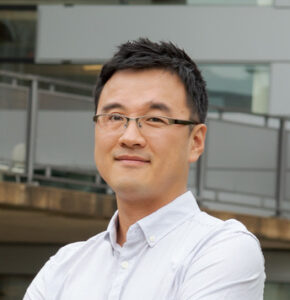 He is a Computational Mathematician in the LANS (Laboratory for Applied Mathematics, Numerical Software, and Statistics) group, Mathematics and Computer Science Division at Argonne National Laboratory, and a Senior Scientist at-Large at the University of Chicago Consortium for Advanced Science and Engineering. His primary research focus is on large-scale optimization and distributed algorithms capable of running on high performance computing systems, in applications to distributed machine learning and complex energy systems. His recent research focuses on developing algorithms and software packages for privacy-preserving federated learning. Before joining Argonne, he obtained a Ph.D. degree in Industrial Engineering and Management Sciences from Northwestern University. He is a recipient of the 2019 DOE Early Career Research Program award. He currently serves as associate editors in Mathematical Programming Computation and Naval Research Logistics and board members for COIN-OR Foundation and IISE Energy Systems. He is a Computational Mathematician in the LANS (Laboratory for Applied Mathematics, Numerical Software, and Statistics) group, Mathematics and Computer Science Division at Argonne National Laboratory, and a Senior Scientist at-Large at the University of Chicago Consortium for Advanced Science and Engineering. His primary research focus is on large-scale optimization and distributed algorithms capable of running on high performance computing systems, in applications to distributed machine learning and complex energy systems. His recent research focuses on developing algorithms and software packages for privacy-preserving federated learning. Before joining Argonne, he obtained a Ph.D. degree in Industrial Engineering and Management Sciences from Northwestern University. He is a recipient of the 2019 DOE Early Career Research Program award. He currently serves as associate editors in Mathematical Programming Computation and Naval Research Logistics and board members for COIN-OR Foundation and IISE Energy Systems.
|
Mariam Kiran
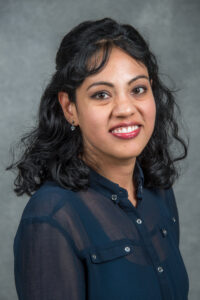 Dr. Kiran is Computer Networking and AI Scientist and currently lead Oak Ridge National Lab’s Quantum Networking Group. Her research explores machine learning and decentralized optimization for networks building ‘self-driving. She received her Ph.D. and MSc (Eng) in Computer Science from the University of Sheffield, UK, in 2011, 2008, respectively. Her notable awards include the Royal Society Scientist in Westminster in 2015, the 2017 U.S. DOE Early Career Award, and ACM’s N2Women Rising Stars in Networking Award in 2021. She is an active member of ACM and a Senior Member of IEEE communities. Dr. Kiran is Computer Networking and AI Scientist and currently lead Oak Ridge National Lab’s Quantum Networking Group. Her research explores machine learning and decentralized optimization for networks building ‘self-driving. She received her Ph.D. and MSc (Eng) in Computer Science from the University of Sheffield, UK, in 2011, 2008, respectively. Her notable awards include the Royal Society Scientist in Westminster in 2015, the 2017 U.S. DOE Early Career Award, and ACM’s N2Women Rising Stars in Networking Award in 2021. She is an active member of ACM and a Senior Member of IEEE communities.
|
Naomi Lefkovitz
 Naomi Lefkovitz is the Senior Privacy Policy Advisor in the Information Technology Lab at the National Institute of Standards and Technology, U.S. Department of Commerce. She leads the privacy engineering program, which focuses on developing privacy risk management processes and integrating solutions for protecting individuals’ privacy into information technologies, including digital identity services, IoT, smart cities, big data, mobile, and artificial intelligence. In addition, she leads the NIST Privacy Framework team. Naomi Lefkovitz is the Senior Privacy Policy Advisor in the Information Technology Lab at the National Institute of Standards and Technology, U.S. Department of Commerce. She leads the privacy engineering program, which focuses on developing privacy risk management processes and integrating solutions for protecting individuals’ privacy into information technologies, including digital identity services, IoT, smart cities, big data, mobile, and artificial intelligence. In addition, she leads the NIST Privacy Framework team.
The International Association of Privacy Professionals named Ms. Lefkovitz their 2020 Vanguard Award winner. She also is a 2014, 2018, and 2020 Federal 100 Awards winner. FierceGovernmentIT named her on their 2013 “Fierce15” list of the most forward-thinking people working within government information technology.
Before joining NIST, she was the Director for Privacy and Civil Liberties in the Cybersecurity Directorate of the National Security Council in the Executive Office of the President. Her portfolio included the National Strategy for Trusted Identities in Cyberspace as well as addressing the privacy and civil liberties impact of the Obama Administration’s cybersecurity initiatives and programs.
Prior to her tenure in the Obama Administration, Ms. Lefkovitz was a senior attorney with the Division of Privacy and Identity Protection at the Federal Trade Commission. Her responsibilities focused primarily on policy matters, including legislation, rulemakings, and business and consumer education in the areas of identity theft, data security and privacy.
At the outset of her career, she was Assistant General Counsel at CDnow, Inc., an early online music retailer.
Ms. Lefkovitz holds a B.A. with honors in French Literature from Bryn Mawr College and a J.D. with honors from Temple University School of Law.
|
Glen Lockwood
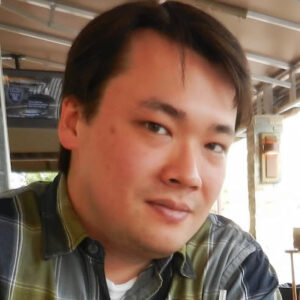 Glenn K. Lockwood is a principal engineer in Microsoft Azure’s AI infrastructure engineering organization, where he is responsible for bringing a workload-centric perspective to the design of Azure’s largest AI supercomputers. His work has centered on the applied research and development of parallel computing systems for science and engineering, and he has specific expertise in scalable architectures, performance modeling, and system design. Though much of his work has been in high-performance storage, Glenn now focuses on translating AI training and inference workflows into system design requirements. Glenn K. Lockwood is a principal engineer in Microsoft Azure’s AI infrastructure engineering organization, where he is responsible for bringing a workload-centric perspective to the design of Azure’s largest AI supercomputers. His work has centered on the applied research and development of parallel computing systems for science and engineering, and he has specific expertise in scalable architectures, performance modeling, and system design. Though much of his work has been in high-performance storage, Glenn now focuses on translating AI training and inference workflows into system design requirements.
|
Valerio Mariani
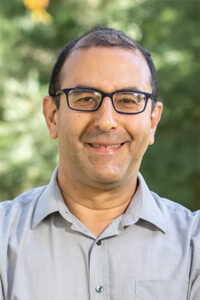 Dr. Valerio Mariani received his PhD in Biophysics at the University of Basel in Switzerland, and is currently Data Analytics Department Head at Linac Coherent Light Source (LCLS), part of the SLAC National Accelerator Laboratory. He has worked in the past at the Center for Free Electron Laser Science (CFEL ) in Hamburg, Germany, and collaborated with world-scale user facilities and light sources like PETRA III and the European XFEL. His previous experiences also include work in CryoEM, electron crystallography and homology modeling. He is especially interested in real time data analysis and data streaming. Dr. Valerio Mariani received his PhD in Biophysics at the University of Basel in Switzerland, and is currently Data Analytics Department Head at Linac Coherent Light Source (LCLS), part of the SLAC National Accelerator Laboratory. He has worked in the past at the Center for Free Electron Laser Science (CFEL ) in Hamburg, Germany, and collaborated with world-scale user facilities and light sources like PETRA III and the European XFEL. His previous experiences also include work in CryoEM, electron crystallography and homology modeling. He is especially interested in real time data analysis and data streaming.
|
Marshall McDonnell
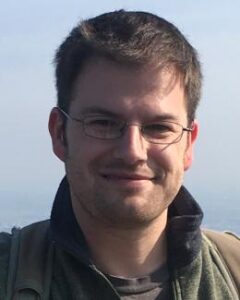 Marshall McDonnell is a research software engineer in the Application Engineering Group. Current scientific interests and projects include developing neutron total scattering data reduction software, linked data for scientific workflows, autonomous experiments, experiment steering, and interconnected science ecosystems. Some specific areas of interest include hydrates for gas storage, nuclear fuel and irradiated containment materials, and materials of geological importance. Marshall McDonnell is a research software engineer in the Application Engineering Group. Current scientific interests and projects include developing neutron total scattering data reduction software, linked data for scientific workflows, autonomous experiments, experiment steering, and interconnected science ecosystems. Some specific areas of interest include hydrates for gas storage, nuclear fuel and irradiated containment materials, and materials of geological importance.
Previously, he was a postdoctoral research associate at ORNL, working on the NOMAD instrument, SNS beam line 1B, and helping both with conducting User experiments, performing complimentary computational modeling and simulation, and developing data reduction software. He received his PhD in chemical engineering from the University of Tennessee, where he used both ab initio and empirical potential molecular dynamics to study polymeric membrane materials.
|
Antonio Mezzacapo
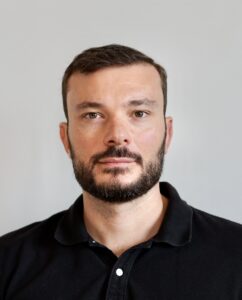 Antonio Mezzacapo is a Principal Research Scientist at IBM Quantum. He is the technical lead responsible for algorithms and demonstrations of quantum-centric supercomputing. Antonio Mezzacapo is a Principal Research Scientist at IBM Quantum. He is the technical lead responsible for algorithms and demonstrations of quantum-centric supercomputing.
|
Bill Miller
 William (Bill) Miller is the Senior Advisor for the Office of Advanced Cyberinfrastructure (OAC) at the U.S. National Science Foundation (NSF). He provides leadership on strategic initiatives within NSF and across the government to expand computational and data-intensive infrastructure capacity for scientific discovery and innovation. He has held prior program and leadership appointments in several NSF directorates and also served for 15 months as Senior Technical Advisor in the Department of Energy’s Office of Science on detail from NSF. He obtained a B.S.E in Aerospace Engineering from the University of Michigan and a Ph.D. in Neuroscience from the University of California-Davis, and conducted successful careers in both of these fields prior to his NSF service. William (Bill) Miller is the Senior Advisor for the Office of Advanced Cyberinfrastructure (OAC) at the U.S. National Science Foundation (NSF). He provides leadership on strategic initiatives within NSF and across the government to expand computational and data-intensive infrastructure capacity for scientific discovery and innovation. He has held prior program and leadership appointments in several NSF directorates and also served for 15 months as Senior Technical Advisor in the Department of Energy’s Office of Science on detail from NSF. He obtained a B.S.E in Aerospace Engineering from the University of Michigan and a Ph.D. in Neuroscience from the University of California-Davis, and conducted successful careers in both of these fields prior to his NSF service.
|
Ben Mintz
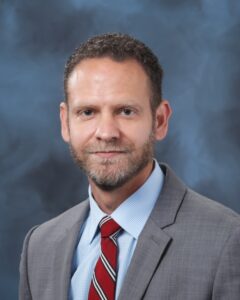 Dr. Benjamin J. Mintz is the Director for the Interconnected Science Ecosystem (INTERSECT) Initiative at Oak Ridge National Laboratory (ORNL). The goal of the INTERSECT Initiative is to build and deploy a scalable system-of-systems environment that interconnects high performance computing, edge computing, data analysis, and experimental instruments to enable autonomous “self-driving” scientific experiments. As the INTERSECT Director, Ben oversees the initiative strategy, ensures research directly impacts the Department of Energy’s mission, conducts long-range program planning, and provides project leadership. Dr. Benjamin J. Mintz is the Director for the Interconnected Science Ecosystem (INTERSECT) Initiative at Oak Ridge National Laboratory (ORNL). The goal of the INTERSECT Initiative is to build and deploy a scalable system-of-systems environment that interconnects high performance computing, edge computing, data analysis, and experimental instruments to enable autonomous “self-driving” scientific experiments. As the INTERSECT Director, Ben oversees the initiative strategy, ensures research directly impacts the Department of Energy’s mission, conducts long-range program planning, and provides project leadership.
Ben earned his PhD in Chemistry from the University of North Texas with a concentration in Computational Chemistry. He has more than 15 years of experience performing and leading research in fields ranging from chemistry to massively parallel computing to the development of autonomous system-of-systems technologies. Prior to joining ORNL, Ben spent 8 years at Lockheed Martin Skunk Work®, where he served as program manager for multiple Department of Defense programs funded by DARPA and multiple Air Force divisions.
|
Thomas Naughton
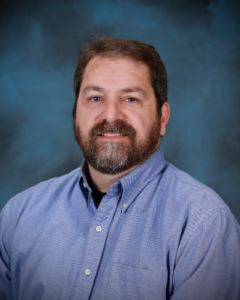 Thomas is a research and development staff member in the Computer Science Research group at Oak Ridge National Laboratory. He has worked on a variety of projects related to system software and middleware tools for high-performance computing. His research interests include resource management and runtime systems for large-scale parallel and distributed environments. He has worked on resilience and fault-injection tools for HPC. He is currently a technical contributor in the Open MPI for Exascale (OMPI-X) project, and principal investigator for an ORNL funded project on the federation of scientific instruments. Thomas received his Ph.D from the University of Reading, England and a M.S. degree in Computer Science from Middle Tennessee State University. He received a B.S. in Computer Science & B.A. in Philosophy from the University of Tennessee at Martin. Thomas is a research and development staff member in the Computer Science Research group at Oak Ridge National Laboratory. He has worked on a variety of projects related to system software and middleware tools for high-performance computing. His research interests include resource management and runtime systems for large-scale parallel and distributed environments. He has worked on resilience and fault-injection tools for HPC. He is currently a technical contributor in the Open MPI for Exascale (OMPI-X) project, and principal investigator for an ORNL funded project on the federation of scientific instruments. Thomas received his Ph.D from the University of Reading, England and a M.S. degree in Computer Science from Middle Tennessee State University. He received a B.S. in Computer Science & B.A. in Philosophy from the University of Tennessee at Martin.
|
Manish Parashar
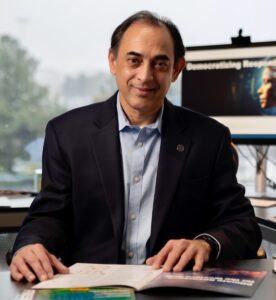
Manish Parashar is Director of the Scientific Computing and Imaging (SCI) Institute, Chair in Computational Science and Engineering, and Presidential Professor, Kalhert School of Computing at the University of Utah. He recently completed an IPA appointment at the National Science Foundation as Office Director of the NSF Office of Advanced Cyberinfrastructure where he oversaw investments in national cyberinfrastructure. He also served as co-chair of the National Science and Technology Council’s Subcommittee on the Future Advanced Computing Ecosystem and the National Artificial Intelligence Research Resource Task Force.
Manish’s expertise is in high performance parallel and distributed computing and cyberinfrastructure, and he has made pioneering contributions towards enabling new insights through large-scale computations and data in a range of science and engineering domains.
Manish has received several awards for his research and leadership, including most recently the 2023 IEEE Computer Society Sidney Fernbach Award and the 2024 CRA Distinguished Service Award.
Manish is the founding chair of the IEEE Technical Consortium on High Performance Computing (TCHPC), and is Fellow of AAAS, ACM, and IEEE/IEEE Computer Society. For more information, please visit http://manishparashar.org.
|
Jacques Pienaar
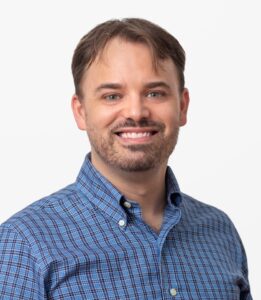 Jacques Pienaar is a lead of the ML Systems Research team at Google Deepmind. In this role he focuses on accelerating and simplifying machine learning for high-performance model deployment across various architectures. He is one of the founders of MLIR, a founding member of XLA and XLA TPU, was tech lead in IREE and OpenXLA, and led TF/XLA bridge, TFLite converter and TensorFlow graph optimization. In these roles he has worked the gamut from packing bits into binary instruction streams, to the first successful ML model trained on TPU POD, to building higher level deployment abstractions and optimizations. Jacques has a PhD from Purdue University where he focussed on runtimes for heterogeneous platforms as a member of the Integrated Systems Laboratory Jacques Pienaar is a lead of the ML Systems Research team at Google Deepmind. In this role he focuses on accelerating and simplifying machine learning for high-performance model deployment across various architectures. He is one of the founders of MLIR, a founding member of XLA and XLA TPU, was tech lead in IREE and OpenXLA, and led TF/XLA bridge, TFLite converter and TensorFlow graph optimization. In these roles he has worked the gamut from packing bits into binary instruction streams, to the first successful ML model trained on TPU POD, to building higher level deployment abstractions and optimizations. Jacques has a PhD from Purdue University where he focussed on runtimes for heterogeneous platforms as a member of the Integrated Systems Laboratory
|
Ryan Prout
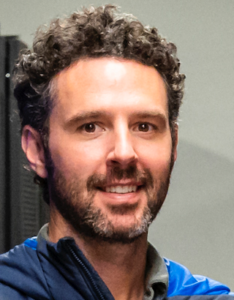 Ryan is in the Operations Section of the National Center for Computational Sciences (NCCS) Directorate at Oak Ridge National Lab (ORNL). In this role he manages a group of software engineers to design, build, and deploy operational software in support of the HPC ecosystem. Additionally, Ryan is co-chair of the Integrated Research Infrastructure’s (IRI) ‘Interfaces’ Technical Subcommittee. In this role he works with representatives across ASCR User Facilities to examine supplemental software interfaces in support of IRI. Ryan is in the Operations Section of the National Center for Computational Sciences (NCCS) Directorate at Oak Ridge National Lab (ORNL). In this role he manages a group of software engineers to design, build, and deploy operational software in support of the HPC ecosystem. Additionally, Ryan is co-chair of the Integrated Research Infrastructure’s (IRI) ‘Interfaces’ Technical Subcommittee. In this role he works with representatives across ASCR User Facilities to examine supplemental software interfaces in support of IRI.
|
David Rogers
 David M. Rogers is a Computational Scientist at Oak Ridge National Laboratory. He obtained his Ph.D. in Physical Chemistry from University of Cincinnati on applying Bayes’ theorem to the free energy problem with applications to multiscale modeling of fluids and interface chemistry. He also completed a Post-doctoral fellowship at Sandia National Labs working on modeling of water and ion conduction, and served as Assistant Professor at the USF Department of Chemistry. Over that time, he has worked on theory and application of statistical mechanical methods in liquids, biomolecules, and quantum models. His research interests include mathematical and computational theory and methods for multiscale modeling. Especially interesting open problems include applications to small nonequilibrium systems, dielectric friction, dispersion, hydration, and its role in nanoscale devices. David’s focus at ORNL is developing more powerful and general libraries and interfaces for modeling these systems at scale. David M. Rogers is a Computational Scientist at Oak Ridge National Laboratory. He obtained his Ph.D. in Physical Chemistry from University of Cincinnati on applying Bayes’ theorem to the free energy problem with applications to multiscale modeling of fluids and interface chemistry. He also completed a Post-doctoral fellowship at Sandia National Labs working on modeling of water and ion conduction, and served as Assistant Professor at the USF Department of Chemistry. Over that time, he has worked on theory and application of statistical mechanical methods in liquids, biomolecules, and quantum models. His research interests include mathematical and computational theory and methods for multiscale modeling. Especially interesting open problems include applications to small nonequilibrium systems, dielectric friction, dispersion, hydration, and its role in nanoscale devices. David’s focus at ORNL is developing more powerful and general libraries and interfaces for modeling these systems at scale.
|
Michael Sandoval
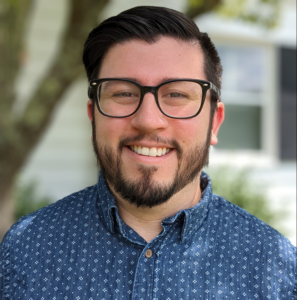 Michael is an HPC Engineer in the User Assistance group at the National Center for Computational Sciences (NCCS). His research focuses on core-collapse supernova modeling, data visualization, and pathfinding quantum computing use-cases on HPC resources. He earned his Bachelor of Science degree from San Jose State University (SJSU) in 2015, where he majored in Physics and minored in both Math and Astronomy. He then received his Ph.D. in 2021 from the University of Tennessee, Knoxville where he studied the late-time evolution of core-collapse supernovae. His work involved running simulations on multiple HPC systems, including Titan and Summit, while visualizing data on Rhea and Andes using VisIt and Blender. Michael is an HPC Engineer in the User Assistance group at the National Center for Computational Sciences (NCCS). His research focuses on core-collapse supernova modeling, data visualization, and pathfinding quantum computing use-cases on HPC resources. He earned his Bachelor of Science degree from San Jose State University (SJSU) in 2015, where he majored in Physics and minored in both Math and Astronomy. He then received his Ph.D. in 2021 from the University of Tennessee, Knoxville where he studied the late-time evolution of core-collapse supernovae. His work involved running simulations on multiple HPC systems, including Titan and Summit, while visualizing data on Rhea and Andes using VisIt and Blender.
|
Laura Schulz
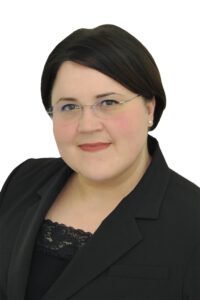 Laura Schulz serves as department head of Quantum Computing and Technologies at the Leibniz Supercomputing Centre (LRZ) in Garching, Germany. She drives multiple efforts toward integrating emerging quantum accelerators into several layers of the high-performance computing (HPC) ecosystem. Laura is PI for LRZ on around a dozen grant projects for regional, national and European initiatives. This includes Germany’s Euro-Q-Exa project to seat a EuroHPC Joint Undertaking quantum system in Bavaria. Before joining LRZ, she was part of the Computation directorate at Lawrence Livermore National Laboratory (LLNL) as well as LLNL’s High Performance Computing Innovation Center (HPCIC). Laura was named an HPCWire 2023 Person to Watch. Laura Schulz serves as department head of Quantum Computing and Technologies at the Leibniz Supercomputing Centre (LRZ) in Garching, Germany. She drives multiple efforts toward integrating emerging quantum accelerators into several layers of the high-performance computing (HPC) ecosystem. Laura is PI for LRZ on around a dozen grant projects for regional, national and European initiatives. This includes Germany’s Euro-Q-Exa project to seat a EuroHPC Joint Undertaking quantum system in Bavaria. Before joining LRZ, she was part of the Computation directorate at Lawrence Livermore National Laboratory (LLNL) as well as LLNL’s High Performance Computing Innovation Center (HPCIC). Laura was named an HPCWire 2023 Person to Watch.
|
Ravi Tandon
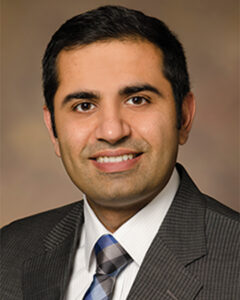 Ravi Tandon is the Litton Industries John M. Leonis Distinguished Associate Professor in the ECE department at University of Arizona. He received his Ph.D. in ECE from University of Maryland, College Park and B.S. in Electrical Engineering from IIT Kanpur, India. He is a recipient of 2017 NSF CAREER Award, 2018 Keysight Early Career Award, 2011 IEEE Globecom Best Paper Award, and is a Craig M. Berge Faculty Fellow at University of Arizona since 2024. He has co-authored more than 150+ publications and serves as an Editor for IEEE Transactions on Information Theory and IEEE Transactions on Communications. His current research interests are in trustworthy and reliable machine learning, with a focus on problems related to data privacy, fairness and robustness. Ravi Tandon is the Litton Industries John M. Leonis Distinguished Associate Professor in the ECE department at University of Arizona. He received his Ph.D. in ECE from University of Maryland, College Park and B.S. in Electrical Engineering from IIT Kanpur, India. He is a recipient of 2017 NSF CAREER Award, 2018 Keysight Early Career Award, 2011 IEEE Globecom Best Paper Award, and is a Craig M. Berge Faculty Fellow at University of Arizona since 2024. He has co-authored more than 150+ publications and serves as an Editor for IEEE Transactions on Information Theory and IEEE Transactions on Communications. His current research interests are in trustworthy and reliable machine learning, with a focus on problems related to data privacy, fairness and robustness.
|
Adam Thompson
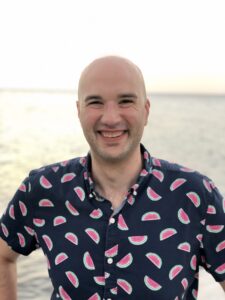 Adam Thompson is a Principal Technical Product Manager at NVIDIA where he focuses on building hardware and software platforms targeting real-time AI, smart sensors, and tying high speed sensor I/O to GPU-accelerated compute. His work advances edge and datacenter/cloud collaborative workloads that integrate Digital Twins of instruments and AI training/fine-tuning deployments. Adam Thompson is a Principal Technical Product Manager at NVIDIA where he focuses on building hardware and software platforms targeting real-time AI, smart sensors, and tying high speed sensor I/O to GPU-accelerated compute. His work advances edge and datacenter/cloud collaborative workloads that integrate Digital Twins of instruments and AI training/fine-tuning deployments.
Adam is also the creator of cuSignal – a GPU-accelerated signal processing library written in Python. With over 400,000 downloads, cuSignal is widely used in the sensor processing communities, and – as of CuPy v13, is fully integrated within CuPy library.
He holds a Masters degree in Electrical and Computer Engineering from Georgia Tech and a Bachelors Degree in Electrical Engineering from Clemson University.
|
Amir Shehata
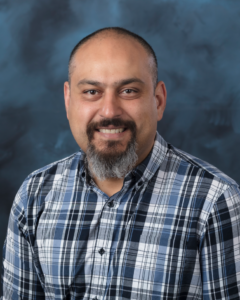 Amir Shehata is an HPC Systems Engineer in the National Center for Computational Sciences (NCCS). His proficiency extends to open-source kernel development and providing technical leadership in Lustre networking, Libfabric and quantum/hpc integration. Amir Shehata is an HPC Systems Engineer in the National Center for Computational Sciences (NCCS). His proficiency extends to open-source kernel development and providing technical leadership in Lustre networking, Libfabric and quantum/hpc integration.
|
Feiyi Wang
 Feiyi Wang received his Ph.D. in Computer Engineering from North Carolina State University (NCSU). He is currently a Distinguished Research Scientist and Group Leader of Analytics and AI methods at Scale Group (AAIMS), at National Center for Computational Sciences of Oak Ridge National Laboratory (ORNL). His research interests include distributed machine learning and benchmarking, high performance storage system, parallel I/O and file systems. He is the recipient of SC’21 Best Paper Award, Bench’21 Best Paper Award, SC’21 and SC’22 Gordon Bell Covid Special Finalist, HPCC’17 Best Paper Finalist, SBDAC-PAD’16 Best Paper Finalist, SC’14 Best Paper Finalist. In 2022, He won three UT-Battelle Award on Research Accomplishment, Distinguished Innovation, and prestigious Director’s Award. Dr. Wang held Joint Faculty Professor of ECE Department, Bredesen Center Faculty position at University of Tennessee. He is also a Senior Member of IEEE. Feiyi Wang received his Ph.D. in Computer Engineering from North Carolina State University (NCSU). He is currently a Distinguished Research Scientist and Group Leader of Analytics and AI methods at Scale Group (AAIMS), at National Center for Computational Sciences of Oak Ridge National Laboratory (ORNL). His research interests include distributed machine learning and benchmarking, high performance storage system, parallel I/O and file systems. He is the recipient of SC’21 Best Paper Award, Bench’21 Best Paper Award, SC’21 and SC’22 Gordon Bell Covid Special Finalist, HPCC’17 Best Paper Finalist, SBDAC-PAD’16 Best Paper Finalist, SC’14 Best Paper Finalist. In 2022, He won three UT-Battelle Award on Research Accomplishment, Distinguished Innovation, and prestigious Director’s Award. Dr. Wang held Joint Faculty Professor of ECE Department, Bredesen Center Faculty position at University of Tennessee. He is also a Senior Member of IEEE.
|
Stuart Wilkins
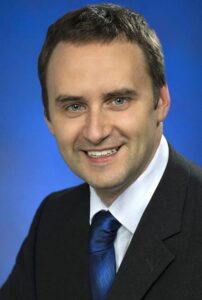 Stuart serves as the Program Manager for the Data Science and Systems Integration (DSSI) program and the Deputy Director for Operations in the Physical Sciences and Research Operations Division at the NSLS-II. Stuart oversees a program responsible for research and development in data science and advanced instrumentation and operation of the critical underlying controls and data infrastructure of the NSLS-II. Stuart serves as the Program Manager for the Data Science and Systems Integration (DSSI) program and the Deputy Director for Operations in the Physical Sciences and Research Operations Division at the NSLS-II. Stuart oversees a program responsible for research and development in data science and advanced instrumentation and operation of the critical underlying controls and data infrastructure of the NSLS-II.
|
Guannan Zhang
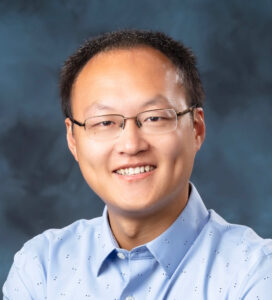 Dr. Guannan Zhang is a Senior Staff Scientist in Machine Learning and Data Analytics Group at Oak Ridge National Laboratory (ORNL). He earned his Ph.D. in applied mathematics at Florida State University in 2012. He joined ORNL in 2012 as the Householder fellow in the Computational and Applied Mathematics Group within Computer Science and Mathematics Division. He received the DOE Early Career Award in 2022. Guannan’s research interests include high-dimensional approximation, uncertainty quantification, machine learning and artificial intelligence, stochastic optimization and control, numerical solution of stochastic differential equations, and model reduction for parametrized differential equations. Dr. Guannan Zhang is a Senior Staff Scientist in Machine Learning and Data Analytics Group at Oak Ridge National Laboratory (ORNL). He earned his Ph.D. in applied mathematics at Florida State University in 2012. He joined ORNL in 2012 as the Householder fellow in the Computational and Applied Mathematics Group within Computer Science and Mathematics Division. He received the DOE Early Career Award in 2022. Guannan’s research interests include high-dimensional approximation, uncertainty quantification, machine learning and artificial intelligence, stochastic optimization and control, numerical solution of stochastic differential equations, and model reduction for parametrized differential equations.
|
Chris Zimmer
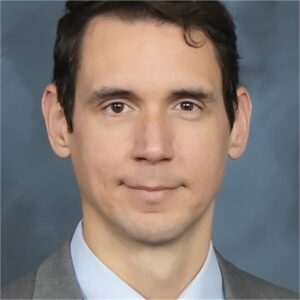 Christopher Zimmer is the acting group leader of the Technology Integration group within the National Center for Computational Science. His research has focused on high-performance networks, storage, and resource management of leadership-class supercomputers. He has participated in the deployments of Summit, Frontier, and soon Discovery. For Frontier and Discovery, Christopher leads the high-performance network working group and is the technical project officer for non-recurring engineering. Christopher is also leading the New Frontiers vendor research program investigating the technologies necessary to drive and deploy supercomputing in the next decade. Christopher Zimmer is the acting group leader of the Technology Integration group within the National Center for Computational Science. His research has focused on high-performance networks, storage, and resource management of leadership-class supercomputers. He has participated in the deployments of Summit, Frontier, and soon Discovery. For Frontier and Discovery, Christopher leads the high-performance network working group and is the technical project officer for non-recurring engineering. Christopher is also leading the New Frontiers vendor research program investigating the technologies necessary to drive and deploy supercomputing in the next decade.
|

